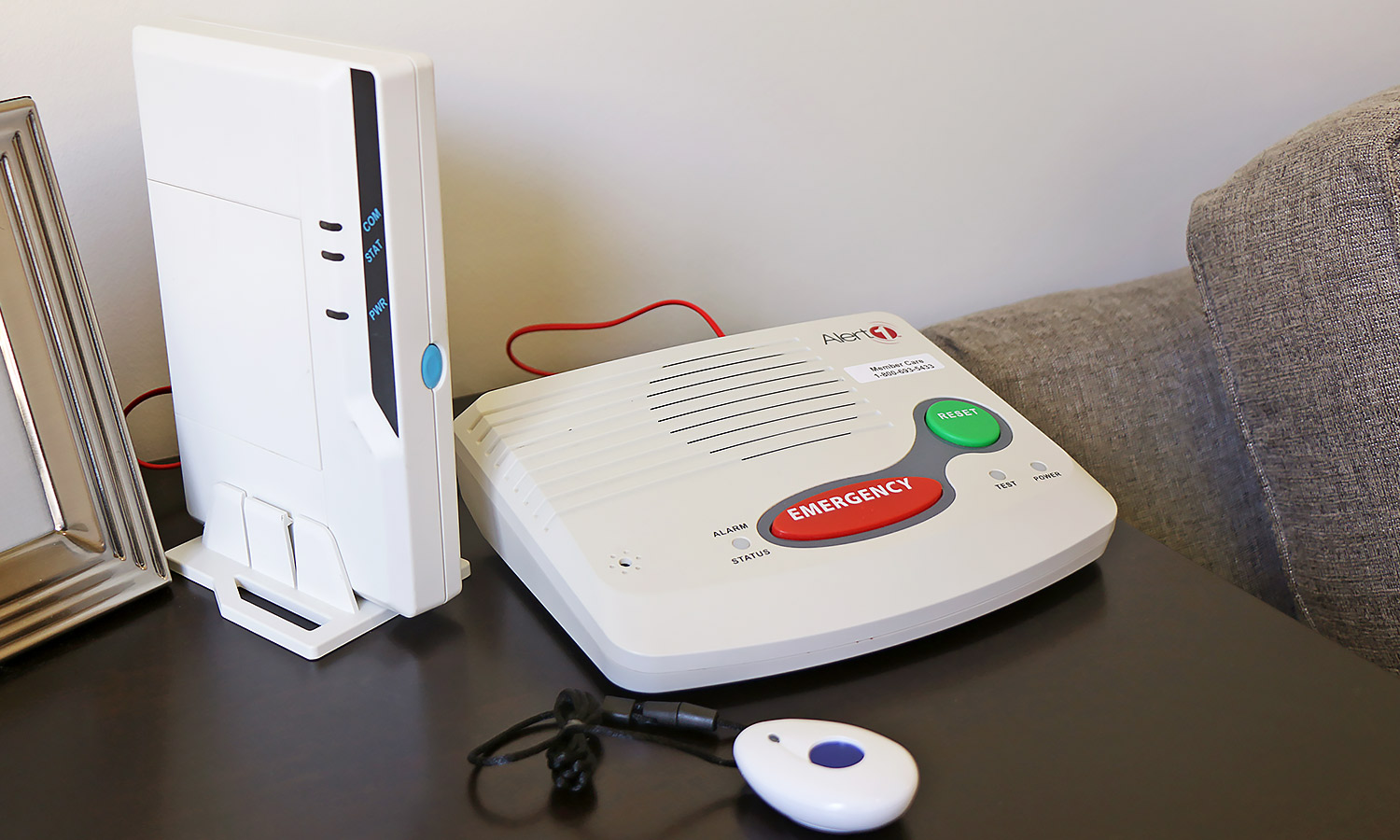
Alert1 is a company that provides medical alert systems for seniors who want to live independently and safely. Alert1 has three plans to choose from, depending on your needs and preferences. Each plan includes a wearable device with an emergency button and a 24/7 monitoring service that can contact your family, friends, or emergency responders in case of an emergency. Alert1 was founded in 1988 and is based in Williamsport, Pennsylvania. It has two UL-listed and Five Diamond-certified call centers that offer customer service in 190 different languages.
Alert1: Medical alert systems
Both the in-home landline and cellular systems utilize the same medical alert system. When selecting the cellular option, an adapter is included to connect to a cellular network instead of relying on a landline. While most services have a pre-configured cellular system, this particular system requires manual assembly. The adapter itself is not compact, potentially posing a challenge in limited counter spaces.
The in-home system's pendant range, averaging 100 feet, surpasses the industry average. It outperforms MyTrex and MobileHelp systems, which typically cover around 77 and 88 feet, respectively. Although rated for 1,000 feet, the 100-foot range is ideal for homes or apartments. Venturing beyond this distance increases the risk of failed emergency communication or false alerts.
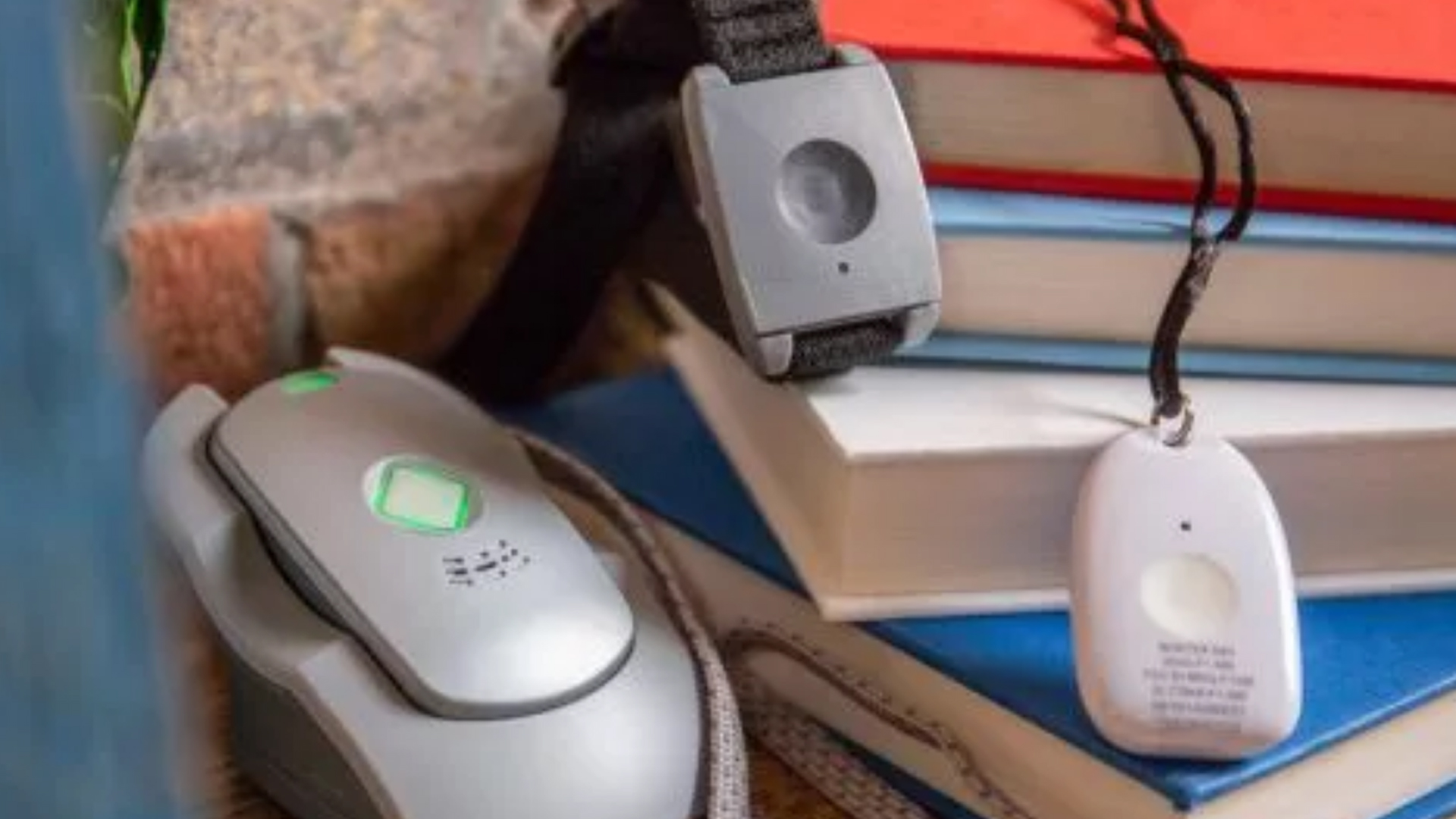
During fall detection tests, the Alert1 pendant stood out as the service's highlight. It accurately detected falls without being overly sensitive and generating excessive false alerts. However, it's important to note that false alerts can still occur, as even dropping the pendant from a mere 12 inches triggered a fall detection, indicating that help calls may be initiated more easily than anticipated.
The mobile GPS device, specifically the Kelsi mobile PERS device, demonstrated significantly improved fall detection capabilities. While the audio quality of the Kelsi is inferior to that of other mobile devices, it surpasses that of the in-home base station, which lacks both clarity and volume.
We were genuinely surprised by the cellular adapter that came with the in-home cellular system. Given the absence of any images on the company's website, we were completely unprepared for its substantial size. Resembling a Wi-Fi modem, it occupies a significant amount of space. In contrast, most in-home cellular systems simply require flipping a switch to establish a connection to the cellular signal.
Alert1: Emergency response center
In terms of emergency call response speed, Alert1 exhibited the weakest performance. During the initial three-week daily testing phase, it recorded an average of 67 seconds per call, positioning it as one of the slowest services in the test. Surprisingly, in the subsequent three-week daily testing phase, while most other services showed improvements, Alert1's performance regressed, resulting in an average of almost 120 seconds per call. To put this into perspective, GreatCall, a competing service, achieved average response times of 20 seconds and 15 seconds in the respective testing phases. In emergency situations, these time differences can be profoundly significant. Even in non-emergency scenarios, the disparities are noticeable.
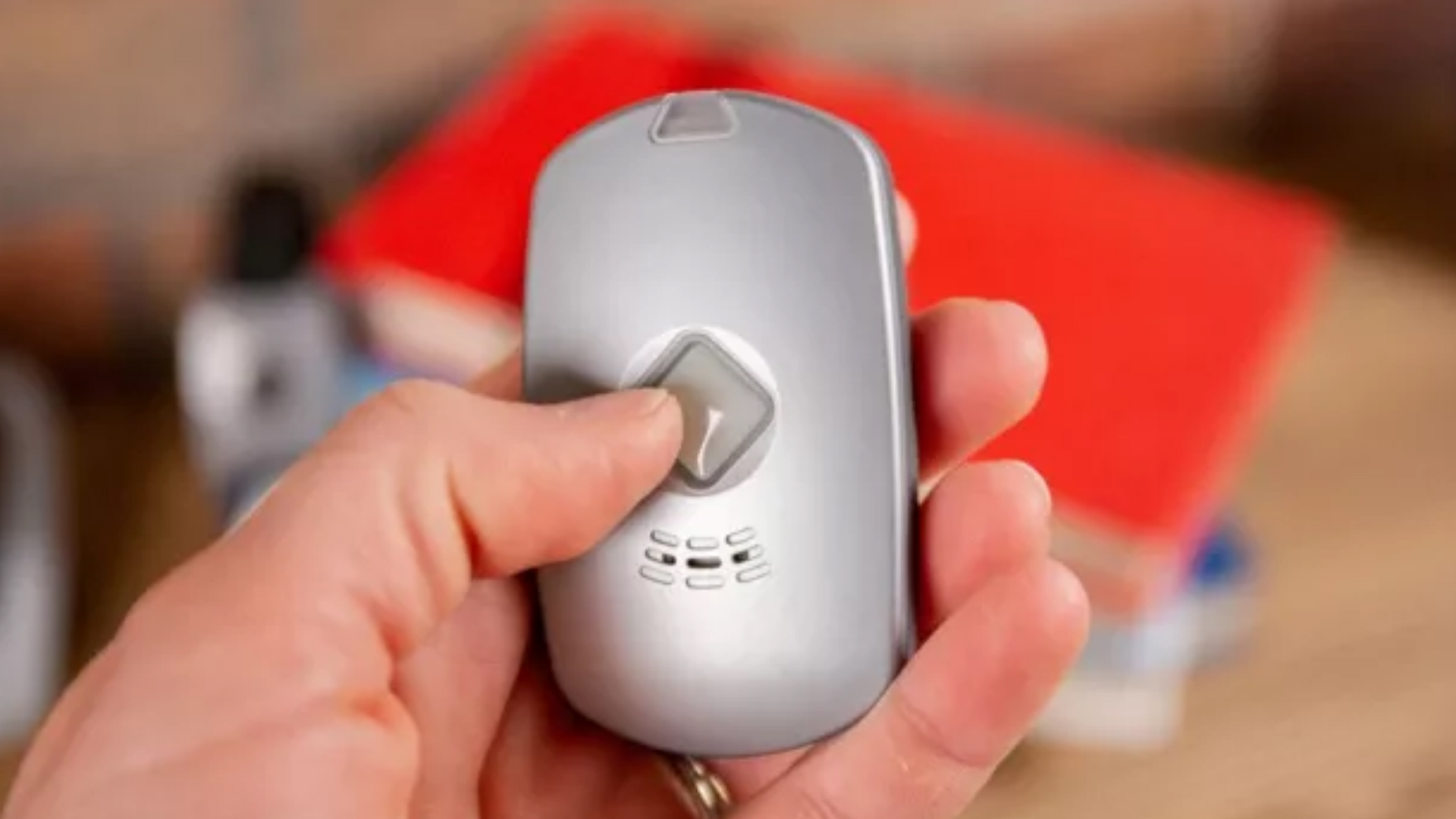
Furthermore, the call quality was less than satisfactory. Although most operators were professional, there were instances where they abruptly ended the call without checking on our well-being. Additionally, our identity was never verified. It was also noticeable that some operators sounded unenthusiastic and fatigued. In multiple calls, we experienced disruptive and loud beeping noises due to operators pressing buttons on their end. These factors collectively failed to provide any comfort or reduce the anxiety typically associated with reaching out to an emergency call center.
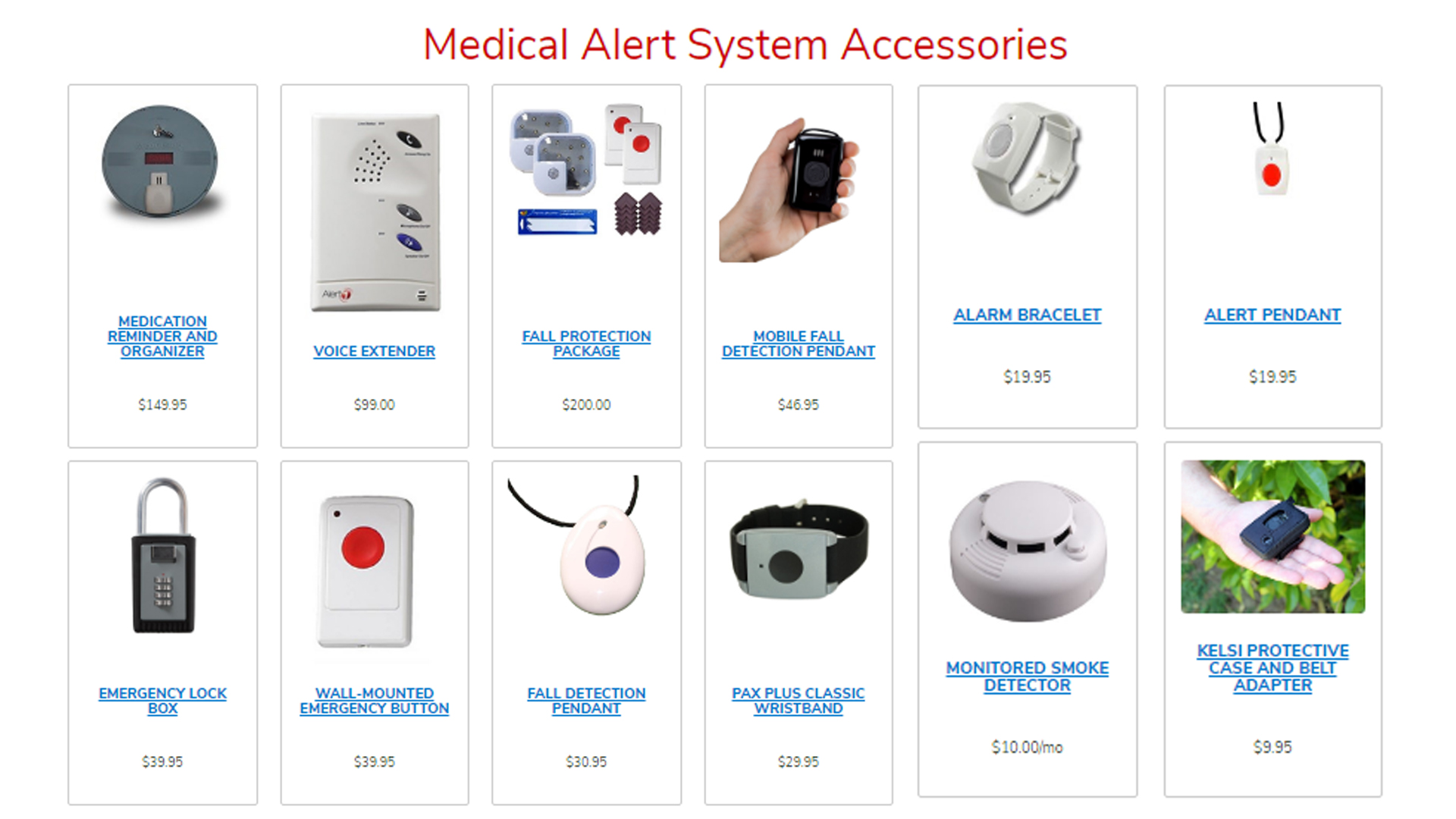
Alert1: Accessories
On a positive note, Alert1 does offer more accessories to help with aging in place than other services. While they have the standard accessories, like lockbox and fall detection pendants, they also have medication reminders, fall protection kits, and more.
Alert1: Pricing
Alert1's medical alert systems start at $19.95 per month, depending on the features and functions you choose. Here's a breakdown of their most popular plans:
In-Home Classic Medical Alert: This plan starts at $19.95 per month and includes a help button, 24/7 monitoring, and fall detection.
On-The-Go: This plan starts at $39.95 per month and includes a mobile help button with GPS, 24/7 monitoring, and fall detection.
Ultimate: This plan starts at $44.95 per month and includes all the features of the Homeland Classic and On-The-Go plans, plus medication reminders and voice activated help.
Alert1 also offers a variety of other features and add-ons, such as fall detection for $10 per month, a lockbox for $5 per month, and additional help buttons for $5 per month each. If this all sounds confusing, no worries as you can get a free quote on Alert1's website or by calling them at 1-888-782-5378.
Finally, some additional things to keep in mind when considering Alert1 include that there is no activation fee or long-term contract required, you can cancel your service at any time, and there is a 30-day money-back guarantee.
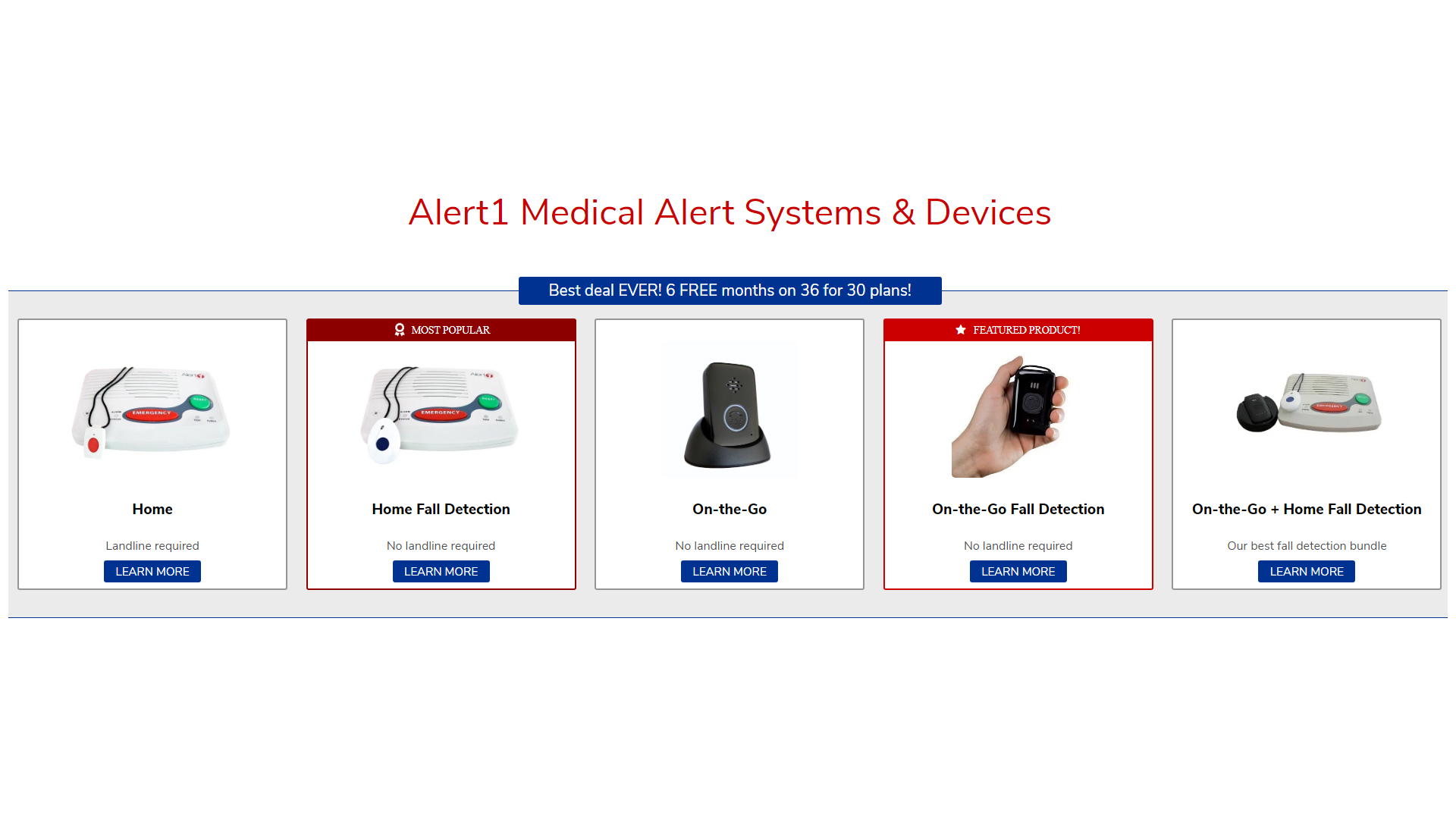
Alert1: Final verdict
Alert1 offers medical alert systems for seniors who want to live independently. They have various plans and devices to suit different needs, including in-home, mobile, and fall detection options. Their prices range start at $19.95 per month, with additional features and add-ons available. While they offer more accessories than other services and have no activation fee or contract, their emergency response center was slow and call quality was not the best. Their Kelsi mobile GPS device with fall detection was their best product.







